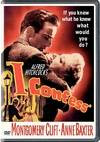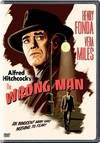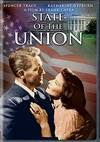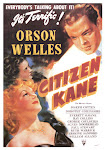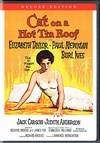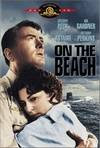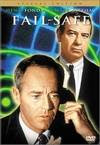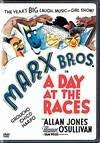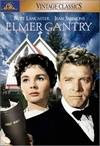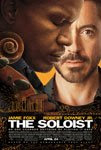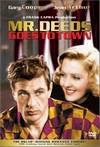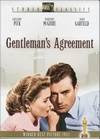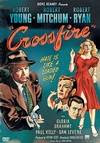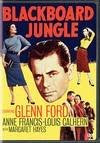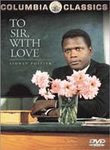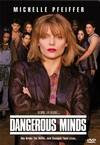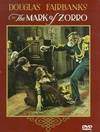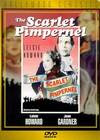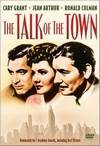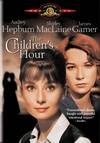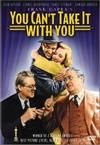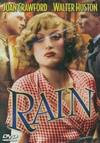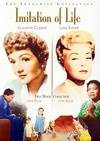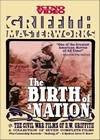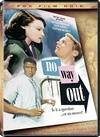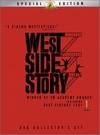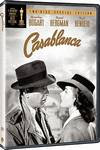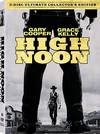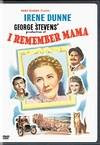Mr. Deeds Comes to Town
A Christmas Carol
It Could Happen to You
These days, you hear a lot of negative talk about an economic system called socialism and anger about the idea of a redistribution of wealth. To my ears, such complaints contain a double irony. First, the majority of people who are making these complaints are likely to benefit from them. Second, most of these people consider themselves Christians – a religion whose founder taught that we are our brothers’ and sisters’ keepers and it is our duty to take care of those less fortunate than ourselves. These teachings are at the core of the three movies I will discuss in this posting.
I begin with the Great Depression-era film Mr. Deeds Comes to Town (released in 1936 in black and white), the story of Mandrake Falls, Vermont, resident Longfellow Deeds who comes into a $20 million fortune when his uncle, Martin Semple, dies and makes the tuba playing, greeting-card poet his sole beneficiary. The uncle’s lawyer, John Cedar, takes the nephew to New York City, where Longfellow becomes embroiled in a lot of high-society shenanigans and meets an award-winning reporter named Babe Bennett.
Unfortunately for Longfellow, these two characters do not have his best interests at heart. Cedar has been embezzling money from the Semple estate and plans to trick Longfellow into letting him handle the money from the inheritance. Meanwhile, Babe pretends to be a poor woman who wants to be his friend so that she can gather information for a series of newspaper articles. As can be expected, Longfellow is willing to trust Cedar, up to a point, and falls in love with Babe. And adding to the plot, Mr. and Mrs. Semple, Longfellow’s cousin and his wife, show up with the intention of contesting the will.
But the stories of Longfellow’s misadventures reach a farmer friend of his from Vermont. The farmer comes to New York to chastise Longfellow for allowing the foolishness to get the better of him. The farmer then convinces Longfellow that there are better ways to use his money than on frivolity. So Longfellow comes up with the idea to take $18 million of his inheritance and use it to buy farms and give them to needy families. When Cedar finds out, he begins legal proceedings to have Longfellow committed to a mental institution. The reason? Anyone willing to give away $18 million must be crazy.
At the trial, Cedar’s main witnesses are two sisters who live together in Mandrake Falls and testify that they consider Longfellow “pixilated.” Babe, who by now has revealed her charade, is also called on to attest to Longfellow’s eccentricities – and although her testimony is damaging, she confesses on the stand that she is in love with him.
This admission stirs Longfellow, who has remained completely silent during the proceedings, to finally defend himself. He does this by pointing out the idiosyncrasies of many of the people in the courtroom – including Cedar, Mr. Semple and the judge – and then questioning the sisters from Mandrake Falls. Longfellow asks the sisters if they still think that he is pixilated, to which they reply, “Yes.” He then asks them who else in Mandrake Falls is pixilated. They answer, “Why everyone, of course, except us.” Longfellow then explains why he wants to make the generous gesture that Cedar and the Semples oppose. He uses a metaphor involving a man in a row boat who sees another man in a row boat and a man who is drowning in the water. He asks the judge who deserves his help more, the drowning man or the man in the row boat who is too lazy to use his oars. After due deliberation, the judge tells Longfellow that he is the sanest man who has ever been in his courtroom.
In the film adaptation of Charles Dickens’ A Christmas Carol (1938, b&w), miserly businessman Ebenezer Scrooge – a man who has nothing but disdain for his soon-to-be-married nephew; his underpaid employee and his family, which includes a young crippled son; and mankind in general, which he proves by saying that the poor should be relegated to jails and poor houses and don’t deserve any monetary assistance from him – learns to change his stingy ways with the help of a ghost and three spirits who visit him on Christmas Eve.
After being guided by the spirits on visits to his past, the present and the future, Scrooge rediscovers the merry feelings of Christmas that he enjoyed while he was young and before he became jaded by the disappointments he had experienced. He is especially moved by the forewarned death of his employee’s son. Then on Christmas morning, a cheerful Scrooge promises to donate a large sum of money to help the poor and amasses an armful of presents that he gives to the nephew and his fiancée and his employee’s family. He also gives his employee a raise and promises to help with the lame child's medical expenses.
This story has been cinematically produced many times with both human and cartoon characterizations. I’ve watched this particular version every Christmas season since I was a child. Back then in New York, this version and a 1951 version of the story were played back-to-back all night long on Christmas Eve – and I would be glued to the television set the entire night, not worried that Santa might find me awake. The other movie that I watch every Christmas season is It’s a Wonderful Life, which I could have included in this posting. However, I’m saving that for another time because I consider the next film It’s a Wonderful Life’s cinematic progeny.
It Could Happen to You (1994, color) is the story of an exceptionally kind-hearted, married, New York City policeman named Charley Lang who tips a waitress $2 million dollars. Perhaps I should explain how this happened.
Charlie’s wife Muriel, who works in a beauty salon and is obsessed with acquiring as much money as she can, had a dream that she took as a sign that she would win the lottery. Muriel sent Charlie to purchase the lottery ticket, which he did while on duty. Charlie and his partner, Bo Williams, then stopped in a diner to get lunch. Their waitress, Yvonne Biasi – who is separated from her no-good husband and earlier that day had been officially declared bankrupt – served them coffee and then went to fill their order. But they were interrupted by a call on their police radio and had to leave before they got served. When Charlie went to pay the bill for his coffee, he discovered that he didn’t have enough money for a tip, so he promised Yvonne that he would return the next day to either share his lottery winnings or give Yvonne double the tip. Of course, Charlie never expected to win the lottery and Yvonne never expected to see him again.
That night, Muriel and Charlie find out that they have, indeed, hit the jackpot. Naturally, Muriel is upset when she learns that her husband had promised to share their winnings with a waitress. But Charlie eventually manages to calm Muriel down by telling her that she will become known as “the woman with the heart of gold” and her fame will earn her commercial endorsements that will increase her newfound wealth. The next day, Charlie returns to the diner to and gives the good news to Yvonne.
After receiving their money, Muriel goes on a spending spree, buying furs, jewelry and knocking out walls to expand the size of their apartment. Yvonne, on the other hand, goes to the grocery store and treats herself with a jar of Macadamia nuts. She also buys the diner where she worked and sets up a table that is reserved for free meals for homeless people.
You might think that Charlie would retire from the police force after his windfall – but not this guy. He believes that being a cop is the noblest profession there is. But he gets slightly wounded while preventing a robbery and, unfortunately from his point of view, is given time off. Then, he and Muriel attend a party cruise for lottery winners. Muriel, now in her element, leaves Charlie and goes off to mingle with the others partygoers – and meets a man who seemed to me to be way too interested in the flashy beautician. Charlie, who is obviously uncomfortable at the event, goes up on deck to be alone. While there, he sees Yvonne arrive in a taxi and goes to meet her on the dock. But by the time they head to the gangplank, the party is pulling away from the pier and Charlie and Yvonne have missed the boat.
Charlie and Yvonne then go out to dinner, do a little dancing and – since Charlie has so much time off because of his recovery – agree to get together again just to hang out. Their hanging out involves things like buying bags of tokens to pay for subway rides for working people and renting out a professional baseball park so they can give groups of kids the opportunity to actually play the game in the kind of place where many of their sports idols would play.
But Muriel is unhappy with the way Charlie is spending their money and jealous of his relationship with Yvonne. So, she kicks him out. Meanwhile, Yvonne’s husband has returned and wants some of her windfall. Yvonne packs a bag and walks out. And as fate (the plot, actually) would have it, Charlie and Yvonne – unaware of what is going on in each other’s personal life – check into the Plaza Hotel at just about the same time. And of course, the love that has been simmering beneath the surface fully blossoms. The next day, Yvonne returns to her apartment and finds her husband has gone, and Charlie goes to stay with Bo and his family.
Then, Muriel sues for divorce and not only wants Charlie’s share of the lottery winnings, which he gladly is willing to fork over, but also the money that was given to Yvonne. Calling it unfair, Charlie decides to fight the demand and they all end up in court. During the proceedings, Yvonne is made to look like a gold digger and Charlie a philanderer who is having an affair with another man’s wife. When Muriel wins the case, Yvonne runs out of the courthouse in tears before Charlie can catch up with her.
Charlie eventually finds Yvonne at the diner, which is no longer hers, on a rainy night. She tells Charlie to leave her alone because she feels responsible for ruining his life. But Charlie refuses to go and gets her to admit that she does love him.
Now we come to the part that ties this movie to It’s a Wonderful Life. This film has been narrated by a person named Angel, who is actually more than just the narrator. Angel, disguised as a homeless person seeking a meal, shows up at the diner while Charlie and Yvonne are licking their wounds inflicted by the trial. After setting up their visitor with a plate of food, Charlie and Yvonne go back to consoling each other while Angel, who is actually a newspaper reporter, stealthily takes pictures of two people dealing with their grief. The next day, the paper runs a romantic story about the tribulations that has left these two wonderfully generous people emotionally scarred and financially bankrupt. And, Angel suggests that his readers do something to help alleviate their misery.
When Charlie and Yvonne go to clean out the diner, they find a stack of mail just inside the door. Inside the mail, Angel’s readers, touched by their story, are sending them money – five dollars here, a ten-dollar check there. The mail keeps coming and it takes several days to open and read all of it – and count up the $600,000 that the letters contained.
In the end, Charlie and Yvonne get married and presumably live happily ever after. As for Muriel, she loses all the money after she marries the sleazebag from the party cruise, who then empties their bank account disappears. Muriel ends up going to live at her mother’s apartment in the Bronx.
Granted, these stories are fairytales. But they do teach us valuable lessons – the most important being that generosity is its own reward. Sharing their fortunes brought satisfaction and joy to Longfellow Deeds, Ebenezer Scrooge and Charlie and Yvonne – who said while paying for people’s subway rides that she was having the best day of her life.
But if you need concrete proof that generosity can improve the fabric of your life, just ask the students in Florida’s Broward County public school system. These kids collectively raised $93,450.14 – enough money to build eleven schools for children living in Kenya. The words of these Florida schoolchildren eloquently echo the message of these movies.
Thirteen-year-old seventh-grader Santiago Vazquez, III, told The Miami Herald: “We have a lot, and I guess you could say they have nothing.”
Said 18-year-old FaraAnn Gonzalez: The children in Kenya are “saying how much they appreciate us. We appreciate them so much more. I’ll be able to tell my kids and my grandkids about that.”
These are things this country would do well in considering when the subject of redistributing wealth arises.
Saturday, April 25, 2009
Monday, April 13, 2009
The Irony and the Bigotry
Gentleman’s Agreement
Crossfire
The Merchant of Venice
Bigotry is full of irony. For instance, the first American to die in the Revolutionary War was a black man named Crispus Atticks – but blacks were held as slaves for more than 80 years after that war, suffered through a peculiar brand of apartheid for another 100 years and only recently were recognized as being able to politically lead a nation that they have led in so many other fields (culture, agriculture, medicine and science, to name a few) since its inception. Another case in point involves Adolph Hitler, the man who is considered by many to be the worst anti-Semite who ever lived – despite the fact that his family tree contained Jewish people.
The movies that will be examined in this posting (Gentleman’s Agreement, released in 1947 in black and white; Crossfire, 1947, b&w; and The Merchant of Venice, 2004, color) offer many excellent examples the cruelty, the stupidity, the smugness, the evil and the irony that anti-Semitism spawns. I should note that I intentionally ignored films about World War II because I wanted to highlight anti-Semitism in this country – but I included the Shakespearean take on the subject because . . . well . . . I love Shakespeare.
Perhaps the greatest irony about Gentleman’s Agreement is that with all the Jewish movie moguls of the early and mid 20th Century, it was a Gentile – Darryl F. Zanuck – who made the film. Some of the reason’s behind the reluctance of Jewish film makers to engage in the project are discussed in the movie.
The film is about a Gentile magazine reporter named Philip Schuyler Green who is given the assignment by a Gentile publisher named John Minify to write a series about anti-Semitism. Phil, a widower who lives with his mother and son, initially is not enthused by the assignment. He changes his mind, however, after discussing the subject over the breakfast table with his family and answering his son Tommy’s questions. While searching for the proper angle from which to attack the subject, it suddenly dawns on him that he should pass himself off as a Jew and report on how he is treated.
Phil tells Minify about the strategy and they agree not to tell anyone that Phil’s claim of being Jewish is false. The only people who are to know besides the publisher and the reporter are Phil’s family and Kathy Lacy, the publisher’s divorced niece who originally suggested the assignment and who becomes romantically involved with Phil – so much so that they become engaged. But, ironically, when Kathy learns about Phil’s strategy, the romance begins to run into trouble. Part of the trouble revolves around a house Kathy owns in an area of Connecticut that discourages Jewish families from living there – but more about this later.
It should be noted that Phil’s mother wholeheartedly supports the idea and Tommy agrees to go along with the plan without hesitation – allowing his friends, schoolmates and teachers to think that he is Jewish.
There is another important character in this tale – Dave Goldman, a Jewish army officer who has been Phil’s best friend since they were kids. Dave has been offered a job in Connecticut but is having a problem finding a place to live. He gives Phil advice on what to expect during his charade. He also gives advice to Kathy about what a husband expects from a wife – advice that my wife said was the best explanation of what a wife should be that she has ever heard.
Then there is Phil’s secretary, Ethel Wales, who has changed her name and is passing for a Gentile. She explains that when she applied for work using her Jewish name, her applications were always rejected – even at the magazine for which she now works. Phil then informs Minify of what happened to her and the publisher immediately calls in his hiring manager and tells him that all future help-wanted ads were to include a line that says an applicant’s religion will not be a consideration for a job. When Miss Wales finds out, she warns Phil that the new advertisement is liable to attract the kind of Jews who wouldn’t be suitable for working at the magazine. Phil replies that her thinking is a form of anti-Semitism and that he doesn’t expect to hear anything like that from her again.
Another important character is Anne Dettrey, a Gentile reporter at the paper who falls in love with Phil even though he is, so she thinks, Jewish. She invites Phil to a party and introduces him to Professor Lieberman, a famous scientist of the Jewish persuasion. She also becomes good friends with Dave and the three of them – Phil, Anne and Dave – start hanging out together.
During his deception, Phil learns first-hand what it is like to be denied admittance to an exclusive hotel; how it feels when the superintendent of the building where he lives tries to discourage him from putting his “Jewish” surname on his mailbox; and, most disheartening, the bigotry his son faces from his schoolmates. When Tommy comes home crying one day about his mistreatment, Kathy tries to console him by telling the child that he should try to understand that the deception is a “horrible lie.” Phil is incensed – probably because by her choice of words, she has implied that Jews are “horrible” people. Thus, the engagement is broken.
When Dave finds out what happened to Tommy, he tells Phil that his assignment is complete because he has now experienced the worst things about anti-Semitism – seeing what it does to Jewish children and feeling the helplessness of their parents.
When Dave turns in the series of articles, his secretary is stunned to learn that a Gentile would willing accept anti-Semitic mistreatment. But everyone involved with Phil and the magazine, especially his mother and Anne, are proud of what he has done and produced.
Then there is Kathy. She meets with Dave and tells him a story about a dinner she attended where a man got up a told a joke that denigrated Jewish people, adding that she and many other attendees didn’t laugh at the joke and felt anger towards the joke teller. Dave responded by telling Kathy that by just sitting there and doing nothing, she was telling this guy that it was alright to be bigoted. Dave said she should have stood up and called him on it, and that confronting people about their bigotry was the only way to really fight against it. Then, Dave gave the speech that my wife loved.
When Dave reports back to Phil about his meeting with Kathy, Dave tells his friend that Kathy has agreed to let Dave and his family rent the previously mentioned Connecticut house – and that she will live in the area to help Dave’s family deal with their Gentile neighbors. I’ll leave it to you to figure out whether Phil and Kathy get back together.
My discussion about Crossfire will be very brief. This film was released several months earlier than the previously discussed movie. But unlike Gentleman’s Agreement, this film looks at the more violent side of anti-Semitism.
The irony – maybe hypocrisy is a better word – of Crossfire is that a soldier who has just returned from World War II, where he fought against Hitler’s Germany and its attempt to annihilate Jews, kills a man simply because that man is Jewish. The soldier expresses disdain for Jews throughout the film and is proud of the murder he has committed. But in the end, the murderer gets what he deserves.
This tightly written film offers an extremely accurate depiction of many of the U.S. military men who returned to the United States after The Second World War. After fighting against the malevolence of Hitler’s Final Solution – which was the extermination of all Jews and all other “inferior” races – these soldiers, sailors and marines continued to consider themselves superior to Jews, blacks, Catholics and others – and often showed no compunction for inflicting bodily, sometimes lethal, harm.
Which brings me to The Merchant of Venice, a story that takes place during the 16th century. The part of the tale that speaks to my current subject revolves around a Jewish money lender named Shylock, who carries deep-seeded resentment about the way Jews are treated, and a merchant named Antonio, who loathes the usury practices he attributes to Shylock. But Antonio, who has taken business away from Shylock by providing loans without interest, becomes beholding to Jew when he agrees to support his friend Bassanio’s desire to wed “the fair” Portia.
However, Portia has many suitors and her father’s blessing is needed before a match can be made. So Portia’s father requires that the suitors raise a certain amount of money and then answer a riddle, which is irrelevant to this discussion. Bassanio asks Antonio help him raise the money and Antonio finds he has to turn to Shylock for a loan. But instead of asking his normal interest rate, Shylock – seeing a way to get revenge on the man he considers an enemy – demands a pound of Antonio’s flesh if the loan cannot be repaid.
As can be expected, Bassanio’s attempt to raise money to give to Antonio, which in turn, will pay off the debt to Shylock, falls flat. And on top of that, Shylock’s daughter, Jessica, elopes with Bassanio’s friend, Lorenzo. Now, with a sense of betrayal added to his resentment, Shylock demands repayment of the loan. Being unable to meet the loan’s conditions, Shylock demands his pound of flesh. Naturally, the case winds up in court.
When it is pointed out that he is being harsh in his demands, Shylock defends himself by essentially saying that he is only acting in the same harsh manner that Christians have treated him. Then Shylock case gets upended by a law of which he was not aware. That law states that it is illegal for a noncitizen, which Jews are considered, to seek physical harm against a citizen of Venice, and the punishment is the harm that is being sought – in this case, a pound of Shylock’s flesh. But Antonio, Bassanio and Portia – apparently coming to understand Shylock’s anger during the course of the trial – plead with the magistrate not to condemn Shylock to the penalty prescribed by law.
The ironies in this story are Shylock’s willingness to act like a Christian in order to exact his revenge, and then having his sentence commuted with the help of the Christians on whom he was trying to exact that revenge.
So, the three films show us that the main ironies of anti-Semitism and all other forms of prejudice: When you think that you and those like you are superior to those from a different community – be that community religious, racial, geographic, or whatever – you tend to prove by you own actions that you are not. In fact, you often prove that you are worse than those “other” people. And this can apply to the victims, as well: When you seek revenge against those who are persecuting you, more likely than not, you will act as badly, or worse, than the persecutors.
One final thought: Gregory Peck, who portrayed Phil Green in Gentleman’s Agreement, is at the top of my favorite-actor list because of his roles as a defender of American ideals. In this movie, he gives a speech that connects anti-Semitism with anti-Americanism. And he reinforced that belief by playing Atticus Finch in To Kill a Mockingbird, where he defends a black man against a false charge of raping a white woman in the Jim Crow-era American South. Mr. Peck obviously believed that being an American meant being tolerant of others regardless of their religion, race, or ethnicity – a belief that we all should hold.
Crossfire
The Merchant of Venice
Bigotry is full of irony. For instance, the first American to die in the Revolutionary War was a black man named Crispus Atticks – but blacks were held as slaves for more than 80 years after that war, suffered through a peculiar brand of apartheid for another 100 years and only recently were recognized as being able to politically lead a nation that they have led in so many other fields (culture, agriculture, medicine and science, to name a few) since its inception. Another case in point involves Adolph Hitler, the man who is considered by many to be the worst anti-Semite who ever lived – despite the fact that his family tree contained Jewish people.
The movies that will be examined in this posting (Gentleman’s Agreement, released in 1947 in black and white; Crossfire, 1947, b&w; and The Merchant of Venice, 2004, color) offer many excellent examples the cruelty, the stupidity, the smugness, the evil and the irony that anti-Semitism spawns. I should note that I intentionally ignored films about World War II because I wanted to highlight anti-Semitism in this country – but I included the Shakespearean take on the subject because . . . well . . . I love Shakespeare.
Perhaps the greatest irony about Gentleman’s Agreement is that with all the Jewish movie moguls of the early and mid 20th Century, it was a Gentile – Darryl F. Zanuck – who made the film. Some of the reason’s behind the reluctance of Jewish film makers to engage in the project are discussed in the movie.
The film is about a Gentile magazine reporter named Philip Schuyler Green who is given the assignment by a Gentile publisher named John Minify to write a series about anti-Semitism. Phil, a widower who lives with his mother and son, initially is not enthused by the assignment. He changes his mind, however, after discussing the subject over the breakfast table with his family and answering his son Tommy’s questions. While searching for the proper angle from which to attack the subject, it suddenly dawns on him that he should pass himself off as a Jew and report on how he is treated.
Phil tells Minify about the strategy and they agree not to tell anyone that Phil’s claim of being Jewish is false. The only people who are to know besides the publisher and the reporter are Phil’s family and Kathy Lacy, the publisher’s divorced niece who originally suggested the assignment and who becomes romantically involved with Phil – so much so that they become engaged. But, ironically, when Kathy learns about Phil’s strategy, the romance begins to run into trouble. Part of the trouble revolves around a house Kathy owns in an area of Connecticut that discourages Jewish families from living there – but more about this later.
It should be noted that Phil’s mother wholeheartedly supports the idea and Tommy agrees to go along with the plan without hesitation – allowing his friends, schoolmates and teachers to think that he is Jewish.
There is another important character in this tale – Dave Goldman, a Jewish army officer who has been Phil’s best friend since they were kids. Dave has been offered a job in Connecticut but is having a problem finding a place to live. He gives Phil advice on what to expect during his charade. He also gives advice to Kathy about what a husband expects from a wife – advice that my wife said was the best explanation of what a wife should be that she has ever heard.
Then there is Phil’s secretary, Ethel Wales, who has changed her name and is passing for a Gentile. She explains that when she applied for work using her Jewish name, her applications were always rejected – even at the magazine for which she now works. Phil then informs Minify of what happened to her and the publisher immediately calls in his hiring manager and tells him that all future help-wanted ads were to include a line that says an applicant’s religion will not be a consideration for a job. When Miss Wales finds out, she warns Phil that the new advertisement is liable to attract the kind of Jews who wouldn’t be suitable for working at the magazine. Phil replies that her thinking is a form of anti-Semitism and that he doesn’t expect to hear anything like that from her again.
Another important character is Anne Dettrey, a Gentile reporter at the paper who falls in love with Phil even though he is, so she thinks, Jewish. She invites Phil to a party and introduces him to Professor Lieberman, a famous scientist of the Jewish persuasion. She also becomes good friends with Dave and the three of them – Phil, Anne and Dave – start hanging out together.
During his deception, Phil learns first-hand what it is like to be denied admittance to an exclusive hotel; how it feels when the superintendent of the building where he lives tries to discourage him from putting his “Jewish” surname on his mailbox; and, most disheartening, the bigotry his son faces from his schoolmates. When Tommy comes home crying one day about his mistreatment, Kathy tries to console him by telling the child that he should try to understand that the deception is a “horrible lie.” Phil is incensed – probably because by her choice of words, she has implied that Jews are “horrible” people. Thus, the engagement is broken.
When Dave finds out what happened to Tommy, he tells Phil that his assignment is complete because he has now experienced the worst things about anti-Semitism – seeing what it does to Jewish children and feeling the helplessness of their parents.
When Dave turns in the series of articles, his secretary is stunned to learn that a Gentile would willing accept anti-Semitic mistreatment. But everyone involved with Phil and the magazine, especially his mother and Anne, are proud of what he has done and produced.
Then there is Kathy. She meets with Dave and tells him a story about a dinner she attended where a man got up a told a joke that denigrated Jewish people, adding that she and many other attendees didn’t laugh at the joke and felt anger towards the joke teller. Dave responded by telling Kathy that by just sitting there and doing nothing, she was telling this guy that it was alright to be bigoted. Dave said she should have stood up and called him on it, and that confronting people about their bigotry was the only way to really fight against it. Then, Dave gave the speech that my wife loved.
When Dave reports back to Phil about his meeting with Kathy, Dave tells his friend that Kathy has agreed to let Dave and his family rent the previously mentioned Connecticut house – and that she will live in the area to help Dave’s family deal with their Gentile neighbors. I’ll leave it to you to figure out whether Phil and Kathy get back together.
My discussion about Crossfire will be very brief. This film was released several months earlier than the previously discussed movie. But unlike Gentleman’s Agreement, this film looks at the more violent side of anti-Semitism.
The irony – maybe hypocrisy is a better word – of Crossfire is that a soldier who has just returned from World War II, where he fought against Hitler’s Germany and its attempt to annihilate Jews, kills a man simply because that man is Jewish. The soldier expresses disdain for Jews throughout the film and is proud of the murder he has committed. But in the end, the murderer gets what he deserves.
This tightly written film offers an extremely accurate depiction of many of the U.S. military men who returned to the United States after The Second World War. After fighting against the malevolence of Hitler’s Final Solution – which was the extermination of all Jews and all other “inferior” races – these soldiers, sailors and marines continued to consider themselves superior to Jews, blacks, Catholics and others – and often showed no compunction for inflicting bodily, sometimes lethal, harm.
Which brings me to The Merchant of Venice, a story that takes place during the 16th century. The part of the tale that speaks to my current subject revolves around a Jewish money lender named Shylock, who carries deep-seeded resentment about the way Jews are treated, and a merchant named Antonio, who loathes the usury practices he attributes to Shylock. But Antonio, who has taken business away from Shylock by providing loans without interest, becomes beholding to Jew when he agrees to support his friend Bassanio’s desire to wed “the fair” Portia.
However, Portia has many suitors and her father’s blessing is needed before a match can be made. So Portia’s father requires that the suitors raise a certain amount of money and then answer a riddle, which is irrelevant to this discussion. Bassanio asks Antonio help him raise the money and Antonio finds he has to turn to Shylock for a loan. But instead of asking his normal interest rate, Shylock – seeing a way to get revenge on the man he considers an enemy – demands a pound of Antonio’s flesh if the loan cannot be repaid.
As can be expected, Bassanio’s attempt to raise money to give to Antonio, which in turn, will pay off the debt to Shylock, falls flat. And on top of that, Shylock’s daughter, Jessica, elopes with Bassanio’s friend, Lorenzo. Now, with a sense of betrayal added to his resentment, Shylock demands repayment of the loan. Being unable to meet the loan’s conditions, Shylock demands his pound of flesh. Naturally, the case winds up in court.
When it is pointed out that he is being harsh in his demands, Shylock defends himself by essentially saying that he is only acting in the same harsh manner that Christians have treated him. Then Shylock case gets upended by a law of which he was not aware. That law states that it is illegal for a noncitizen, which Jews are considered, to seek physical harm against a citizen of Venice, and the punishment is the harm that is being sought – in this case, a pound of Shylock’s flesh. But Antonio, Bassanio and Portia – apparently coming to understand Shylock’s anger during the course of the trial – plead with the magistrate not to condemn Shylock to the penalty prescribed by law.
The ironies in this story are Shylock’s willingness to act like a Christian in order to exact his revenge, and then having his sentence commuted with the help of the Christians on whom he was trying to exact that revenge.
So, the three films show us that the main ironies of anti-Semitism and all other forms of prejudice: When you think that you and those like you are superior to those from a different community – be that community religious, racial, geographic, or whatever – you tend to prove by you own actions that you are not. In fact, you often prove that you are worse than those “other” people. And this can apply to the victims, as well: When you seek revenge against those who are persecuting you, more likely than not, you will act as badly, or worse, than the persecutors.
One final thought: Gregory Peck, who portrayed Phil Green in Gentleman’s Agreement, is at the top of my favorite-actor list because of his roles as a defender of American ideals. In this movie, he gives a speech that connects anti-Semitism with anti-Americanism. And he reinforced that belief by playing Atticus Finch in To Kill a Mockingbird, where he defends a black man against a false charge of raping a white woman in the Jim Crow-era American South. Mr. Peck obviously believed that being an American meant being tolerant of others regardless of their religion, race, or ethnicity – a belief that we all should hold.
Monday, April 6, 2009
Teachers' Threats
Blackboard Jungle
To Sir, With Love
Dangerous Minds
Let me begin by saying that their children’s education was the most important thing in my parents’ life. Although there are so many things that could be taken away from black children in America, an educated mind was not one of them, they said. Having an education could lift us above much of the desperation and desolation with which so many of us – black, white, whatever – have to endure. How it broadens our range of choices and capabilities, thereby expanding our horizons and future possibilities. And they were right – and I thank them every day for insisting that we learn how to learn.
As you probably know from reading my previous postings, I grew up in a white neighborhood in The Bronx, New York City. In elementary school, I was the only black kid in my classes. My first black classmates were in Junior High School, and many of them traveled by subway and then bus from Harlem to attend school in the upper-middle-class neighborhood of Riverdale. And while none of my black schoolmates showed any signs of malignant hostility, I knew that they came from neighborhoods where violence and thievery went with the territory. I knew this because these were the neighborhoods where my father worked as a podiatrist and where my parents owned a dry cleaning store – which, incidentally, was in the same block on West 116th Street where I spent the first 17 months of my life. So, I was always aware that there were children that didn’t have the “educational advantage” that I did. And that is why I have always been attracted to films about educating – excuse the political correctness – “at-risk” kids.
The three films I will talk about in this posting – The Blackboard Jungle (released in 1955 in black and white), To Sir, With Love (1967, color) and Dangerous Minds (1995, color) – all have a lot in common. The stories are about people who are all novice teachers whose first assignments involve unruly students. They also use unorthodox teaching methods to connect with their students. And, they also decide they aren’t cut out for classroom work, but then decide to keep teaching after being encouraged to do so by their students. In The Blackboard Jungle and Dangerous Minds, the teachers – Richard Dadier and Louanne Johnson, respectively – have military backgrounds and plan on making teaching their profession. Mark Thackeray of To Sir, With Love is an out-of-work engineer who takes the job while he looks for work in his previous field.
Although Mr. Dadier is assured by his principal that his all-male school in New York City doesn’t have any disciplinary problems, he finds out differently as soon as he walks into the classroom. Among his trials and tribulations are being tagged with the moniker “Daddy-O” by gang leader Artie West; being turned down when he asks an apparently bright black student, Gregory Miller, to help him get the other students to behave in class; coming to the defense of a teacher who is almost raped by severely beating the assailant; getting severely beaten himself by Artie and his gang while on his way home; and being charged as a bigot after he tries to explain to his class that words like “spic, mick and nigger” are not appropriate language whether in the classroom or in the outside world.
Mr. Dadier also has problems at home. His wife gets it into her head that her pregnancy is making her unattractive to her husband and is worried that she will have another miscarriage. Then on top of that, she begins receiving anonymous letters accusing her husband of being unfaithful.
But Mr. Dadier manages to persevere and begins connecting with his students by taking over the production of the school’s Christmas pageant and using cartoons as an educational tool. But he faces one more threat. After being caught cheating on a test, Artie pulls a knife and calls on the rest of his gang to attack Mr. Dadier. But only one of the gang members responds and after a skirmish in which the teacher is helped by Gregory, Mr. Dadier takes the two rebels to the principal’s office.
In another rare reference to the actors involved in the films that are examined, I just wanted to note that Sidney Poitier, who portrays Gregory Miller in the previous movie, also portrays Mr. Thackeray in To Sir, With Love – the story of a black teacher with a mostly white class in London.
After a very shaky start and then managing to gain a superficial semblance of order with his classroom hooligans, Mr. Thackeray loses his temper when he finds that what I assume is a used feminine napkin in the classroom’s heater. He decides that the regular school curriculum is a waste of time and begins teaching them about life, beginning with his demand that the students address each other in a respectful manner – and calling him either Mr. Thackeray or “Sir.” The class is allowed to discuss anything they want, including sex. He arranges for the girls to get lessons in the application of makeup and in taking care of their hair. He takes his students to a museum. He gives them cooking lessons. And he tries to get them to understand that they need to try and understand viewpoints other than their own. This object lesson is magnified by an incident in the boys’ gym.
The gym instructor obviously has a thing about punishing one of the heavier kids in the class who is known as Fats. The gym instructor forces Fats to take his turn jumping over the vault despite the warnings by the students that the vault is too high. When Fats tries to comply, the vault breaks and Fats gets hurt as he lands on top of the instructor. The other boys are furious and one of them, a boy named Potter, threatens the instructor with one of the vault’s broken legs. Another student rushes off to fetch Mr. Thackeray, who arrives just in time to prevent Potter from cracking the instructor’s head open with the weapon. Back in the classroom, Mr. Thackeray tells the would-be attacker that he should apologize to the gym instructor. Potter wants to know why the instructor isn’t asked to apologize to Fats. Mr. Thackeray explains that he is not responsible for the actions of the gym instructor. Denham, who is the leader of classroom delinquents, tells Potter to apologize or Mr. Thackeray won’t provide a good reference when he graduates and starts looking for a job. To which Mr. Thackeray replies that Potter should not apologize because he is afraid of the consequences of his hoodlum-like behavior but rather because admitting his is wrong is the proper thing for a man to do.
Later, when Mr. Thackeray becomes the gym instructor, Denham challenges him to a boxing match. Although he tries to refuse, he feels he must comply. Denham then proceeds to pummel Mr. Thackeray, who merely defends himself without throwing a punch – that is until Denham’s onslaught finally goes too far and Sir hits him with a hard right to the stomach that stops Denham cold, taking the wind out of him. Afterwards, Denham waits for Sir and asks how many times his teacher hit him. He then asks why Sir didn’t continue to pound him after he had the advantage. Mr. Thackeray replies by offering to help Denham get hired as the school’s boxing instructor after he graduates.
Sir also has to deal with a crush on him by one of his students, a white girl named Pamela Dare, who hates her mother because of her parents’ divorce and because her mother has brought her boyfriends home for intimate relations. Then there’s his black male student named Seales, who hates his father and says he mistreated his white mother. When Sir asks him how his mother was mistreated, Seales replies, “He married her, didn’t he?”
Race is brought up twice more in the movie. As Sir is talking with his students on the steps of the school before classes begin, some kids playing hockey almost hit Pamela with the can they are using. But Sir reaches out and catches the can, which cuts his hand. One of the students jokes that Sir has red blood just like everyone else. Sir just gives a smile and walks into the building. Although most of the students laughed at the “joke,” Pamela scolds Denham, who throughout the film refers to Sir as “Old Chimneysweep,” but not to his face. Then she lays into Seales for not saying anything in defense of Sir. Although Seales doesn’t offer a good excuse, he does admit that he wishes he could be like Sir. And for his part, although he keeps using the term “Old Chimneysweep,” it is obvious that Denham comes to not only respect Sir but also develops real affection for his teacher.
The other incident involves the death of Seales’ mother. The class is taking up a collection to pay for a wreath and Sir asks to be included. He then learns that none of the girls are willing to take the wreath to the family. “You don’t know what people would say if one of us went into a black home,” Pamela informs him. And Denham says none of the boys would take it either. This was before the boxing incident. On the day of the funeral, which is after the boxing incident, Sir is walking to the Seales home and turns the corner to find his entire class there waiting for him.
I also found it interesting that both his student’s parents and his colleagues at the school show Mr. Thackeray a kind of deference that mirrors his students, which borders on worship. Also interesting is that when Sir finally gets an acceptance letter for an engineering job and plans on leaving the school, he allows his mind to be changed by a couple of toughs – one male, one female – who express their distain for the man who will be their teacher next semester.
And one last thought specific to this movie. Mr. Thackeray is one of the worst dancing black men I’ve ever seen. But despite that, the film had been my favorite movie about education until I saw Dangerous Minds, which is based on a true story.
Louanne Johnson accepts a position at a California school before she learns that her class is filled with a raucous group of unruly teenagers – something for which she was unprepared. After being called “White Bread” by the students and taunted by Emilio, the apparent class leader, she walks out of the classroom on her first day and confronts Hal Griffith, her longtime friend who also teaches at the school and helped her get the job, about not being warned about her students. Griffith advises her to figure out a way to get the kids attention. Her idea, use the karate training she learned in the Marine Corps to engage the kids by telling them she will give them lessons in the martial art. However, the school’s principal, a black man who insists that people knock on his door before entering his office, quashes the martial arts instruction, pointing out safety and legal ramifications. But the tactic has worked and the class becomes manageable.
Ms. Johnson’s next tactics further disarm her students: She tells them they all will start out with an “A” and will keep it as long as they put an honest effort into their work; she gives candy bars to students who provide the right answer to her academic questions; and she promises to take the kids to an amusement park using funds from the school board. When class ends, one of her male students warns her that she better be for real and a female student suggests that if she wins over Emilio, the rest of the class with follow suit. The class eventually goes to the amusement park, but it is Ms. Johnson who foots the bill.
But for me, the best part of the story is her use of poetry (I like to think of myself as a poet). She begins with Bob Dylan and shows the students how to translate what Dylan is actually saying with his song that begins, “Hey, Mr. Tambourine Man play a song for me.” (If you don’t know, watch the movie.) The kids see that they can relate to the poem and their learning takes off. She then challenges the students to find a poem by Dylan Thomas that says the same thing as a poem by Bob Dylan – and she will take the winners of the contest to dinner at a very expensive restaurant. This assignment shocks the school librarians, who are stunned to see these particular students studying in their facility.
Ms. Johnson’s progress with her class also has a non-academic side. She stops a fight between Emilio and two other boys who she unintentionally disses. She gets the boys to agree that they won’t fight, but they break their promise and wind up getting suspended. When she asks why they broke their word, one of the boys explains how she dissed him, which made it necessary for him to fight. But the boy also acknowledges that he knows Ms. Johnson was trying to help. Then, the teacher visits the homes of the two suspended boys and tells their parents that they were not to blame for their suspensions and – to the surprise of their parents – that the boys are wonderful students doing great work. The next day, Emilio tells Ms. Johnson that he heard that she had visited the homes of his two classmates. When she confirms the news, he says, “Cool.” Now, everyone is onboard.
But Ms. Johnson does experience some setbacks. Two of her students, one of which had won the dinner but didn’t show up, are taken out of school by their mother, who doesn’t want her boys taught by some do-gooder white woman. And Callie, another student who won the dinner but had to work that night, tells Ms. Johnson that she will be attending another school because she is going to have a baby. Although Ms. Johnson tells her that she can stay at her school if she wants, Callie refuses to change her mind. Additionally, the other student who won the contest shows up at the restaurant in a new leather jacket. During dinner he explains that he will miss a few weeks of school while he works to pay for the jacket, which he got from a street thug who probably stole it, and that his life depended on coming up with the money. Ms. Johnson offers to pay for the jacket but the boy doesn’t want to take the money. They eventually agree that the $200 will be a loan that the boy will pay back after he graduates.
The biggest setback, however, involves Emilio, who is threatened by a thug who does not go to the school. The thug says he is going to kill Emilio for taking his girl away while he was in prison. The girl, who also is in Ms. Johnson’s class, tells the teacher about it and begs her to do something to help. Ms. Johnson agrees to allow Emilio stay at her place over night, where he will be safe and where she convinces him to take his problem to the principal. The next morning, Emilio has left by the time Ms. Johnson wakes up. She rushes frantically to the school and the principal’s office to inquire if he has seen Emilio. The principal says he has, but refused to talk to him because Emilio hadn’t knocked on the door before entering the office. A half an hour later and three blocks from the school, Emilio is found dead. This proves to be too much for Ms. Johnson to bear and she decides that she will leave the school after the semester ends. Her class is very disheartened by the news and tries to talk her out of it – to no avail.
The next day, which is the last day of classes, Callie returns to add her voice to those of her former classmates in trying to convince Ms. Johnson to return next school year. Finally, they bribe her with a candy bar and tell her that she is the light that Dylan Thomas talks about in his poetry – the light that guides their way through life. It proves to be a convincing argument.
Recently, President Obama told our children that by dropping out of school they were doing a disservice to their country, their families and themselves. He also said he was committed to seeing that American kids got the best education in the world. These goals only will be achieved by parents who support their children’s academic endeavors and by teachers like the ones presented here. Teachers who find a way to show kids that getting an education can lead to a better life for all of us – and learning how to learn can be easy, fun and personally satisfying.
To Sir, With Love
Dangerous Minds
Let me begin by saying that their children’s education was the most important thing in my parents’ life. Although there are so many things that could be taken away from black children in America, an educated mind was not one of them, they said. Having an education could lift us above much of the desperation and desolation with which so many of us – black, white, whatever – have to endure. How it broadens our range of choices and capabilities, thereby expanding our horizons and future possibilities. And they were right – and I thank them every day for insisting that we learn how to learn.
As you probably know from reading my previous postings, I grew up in a white neighborhood in The Bronx, New York City. In elementary school, I was the only black kid in my classes. My first black classmates were in Junior High School, and many of them traveled by subway and then bus from Harlem to attend school in the upper-middle-class neighborhood of Riverdale. And while none of my black schoolmates showed any signs of malignant hostility, I knew that they came from neighborhoods where violence and thievery went with the territory. I knew this because these were the neighborhoods where my father worked as a podiatrist and where my parents owned a dry cleaning store – which, incidentally, was in the same block on West 116th Street where I spent the first 17 months of my life. So, I was always aware that there were children that didn’t have the “educational advantage” that I did. And that is why I have always been attracted to films about educating – excuse the political correctness – “at-risk” kids.
The three films I will talk about in this posting – The Blackboard Jungle (released in 1955 in black and white), To Sir, With Love (1967, color) and Dangerous Minds (1995, color) – all have a lot in common. The stories are about people who are all novice teachers whose first assignments involve unruly students. They also use unorthodox teaching methods to connect with their students. And, they also decide they aren’t cut out for classroom work, but then decide to keep teaching after being encouraged to do so by their students. In The Blackboard Jungle and Dangerous Minds, the teachers – Richard Dadier and Louanne Johnson, respectively – have military backgrounds and plan on making teaching their profession. Mark Thackeray of To Sir, With Love is an out-of-work engineer who takes the job while he looks for work in his previous field.
Although Mr. Dadier is assured by his principal that his all-male school in New York City doesn’t have any disciplinary problems, he finds out differently as soon as he walks into the classroom. Among his trials and tribulations are being tagged with the moniker “Daddy-O” by gang leader Artie West; being turned down when he asks an apparently bright black student, Gregory Miller, to help him get the other students to behave in class; coming to the defense of a teacher who is almost raped by severely beating the assailant; getting severely beaten himself by Artie and his gang while on his way home; and being charged as a bigot after he tries to explain to his class that words like “spic, mick and nigger” are not appropriate language whether in the classroom or in the outside world.
Mr. Dadier also has problems at home. His wife gets it into her head that her pregnancy is making her unattractive to her husband and is worried that she will have another miscarriage. Then on top of that, she begins receiving anonymous letters accusing her husband of being unfaithful.
But Mr. Dadier manages to persevere and begins connecting with his students by taking over the production of the school’s Christmas pageant and using cartoons as an educational tool. But he faces one more threat. After being caught cheating on a test, Artie pulls a knife and calls on the rest of his gang to attack Mr. Dadier. But only one of the gang members responds and after a skirmish in which the teacher is helped by Gregory, Mr. Dadier takes the two rebels to the principal’s office.
In another rare reference to the actors involved in the films that are examined, I just wanted to note that Sidney Poitier, who portrays Gregory Miller in the previous movie, also portrays Mr. Thackeray in To Sir, With Love – the story of a black teacher with a mostly white class in London.
After a very shaky start and then managing to gain a superficial semblance of order with his classroom hooligans, Mr. Thackeray loses his temper when he finds that what I assume is a used feminine napkin in the classroom’s heater. He decides that the regular school curriculum is a waste of time and begins teaching them about life, beginning with his demand that the students address each other in a respectful manner – and calling him either Mr. Thackeray or “Sir.” The class is allowed to discuss anything they want, including sex. He arranges for the girls to get lessons in the application of makeup and in taking care of their hair. He takes his students to a museum. He gives them cooking lessons. And he tries to get them to understand that they need to try and understand viewpoints other than their own. This object lesson is magnified by an incident in the boys’ gym.
The gym instructor obviously has a thing about punishing one of the heavier kids in the class who is known as Fats. The gym instructor forces Fats to take his turn jumping over the vault despite the warnings by the students that the vault is too high. When Fats tries to comply, the vault breaks and Fats gets hurt as he lands on top of the instructor. The other boys are furious and one of them, a boy named Potter, threatens the instructor with one of the vault’s broken legs. Another student rushes off to fetch Mr. Thackeray, who arrives just in time to prevent Potter from cracking the instructor’s head open with the weapon. Back in the classroom, Mr. Thackeray tells the would-be attacker that he should apologize to the gym instructor. Potter wants to know why the instructor isn’t asked to apologize to Fats. Mr. Thackeray explains that he is not responsible for the actions of the gym instructor. Denham, who is the leader of classroom delinquents, tells Potter to apologize or Mr. Thackeray won’t provide a good reference when he graduates and starts looking for a job. To which Mr. Thackeray replies that Potter should not apologize because he is afraid of the consequences of his hoodlum-like behavior but rather because admitting his is wrong is the proper thing for a man to do.
Later, when Mr. Thackeray becomes the gym instructor, Denham challenges him to a boxing match. Although he tries to refuse, he feels he must comply. Denham then proceeds to pummel Mr. Thackeray, who merely defends himself without throwing a punch – that is until Denham’s onslaught finally goes too far and Sir hits him with a hard right to the stomach that stops Denham cold, taking the wind out of him. Afterwards, Denham waits for Sir and asks how many times his teacher hit him. He then asks why Sir didn’t continue to pound him after he had the advantage. Mr. Thackeray replies by offering to help Denham get hired as the school’s boxing instructor after he graduates.
Sir also has to deal with a crush on him by one of his students, a white girl named Pamela Dare, who hates her mother because of her parents’ divorce and because her mother has brought her boyfriends home for intimate relations. Then there’s his black male student named Seales, who hates his father and says he mistreated his white mother. When Sir asks him how his mother was mistreated, Seales replies, “He married her, didn’t he?”
Race is brought up twice more in the movie. As Sir is talking with his students on the steps of the school before classes begin, some kids playing hockey almost hit Pamela with the can they are using. But Sir reaches out and catches the can, which cuts his hand. One of the students jokes that Sir has red blood just like everyone else. Sir just gives a smile and walks into the building. Although most of the students laughed at the “joke,” Pamela scolds Denham, who throughout the film refers to Sir as “Old Chimneysweep,” but not to his face. Then she lays into Seales for not saying anything in defense of Sir. Although Seales doesn’t offer a good excuse, he does admit that he wishes he could be like Sir. And for his part, although he keeps using the term “Old Chimneysweep,” it is obvious that Denham comes to not only respect Sir but also develops real affection for his teacher.
The other incident involves the death of Seales’ mother. The class is taking up a collection to pay for a wreath and Sir asks to be included. He then learns that none of the girls are willing to take the wreath to the family. “You don’t know what people would say if one of us went into a black home,” Pamela informs him. And Denham says none of the boys would take it either. This was before the boxing incident. On the day of the funeral, which is after the boxing incident, Sir is walking to the Seales home and turns the corner to find his entire class there waiting for him.
I also found it interesting that both his student’s parents and his colleagues at the school show Mr. Thackeray a kind of deference that mirrors his students, which borders on worship. Also interesting is that when Sir finally gets an acceptance letter for an engineering job and plans on leaving the school, he allows his mind to be changed by a couple of toughs – one male, one female – who express their distain for the man who will be their teacher next semester.
And one last thought specific to this movie. Mr. Thackeray is one of the worst dancing black men I’ve ever seen. But despite that, the film had been my favorite movie about education until I saw Dangerous Minds, which is based on a true story.
Louanne Johnson accepts a position at a California school before she learns that her class is filled with a raucous group of unruly teenagers – something for which she was unprepared. After being called “White Bread” by the students and taunted by Emilio, the apparent class leader, she walks out of the classroom on her first day and confronts Hal Griffith, her longtime friend who also teaches at the school and helped her get the job, about not being warned about her students. Griffith advises her to figure out a way to get the kids attention. Her idea, use the karate training she learned in the Marine Corps to engage the kids by telling them she will give them lessons in the martial art. However, the school’s principal, a black man who insists that people knock on his door before entering his office, quashes the martial arts instruction, pointing out safety and legal ramifications. But the tactic has worked and the class becomes manageable.
Ms. Johnson’s next tactics further disarm her students: She tells them they all will start out with an “A” and will keep it as long as they put an honest effort into their work; she gives candy bars to students who provide the right answer to her academic questions; and she promises to take the kids to an amusement park using funds from the school board. When class ends, one of her male students warns her that she better be for real and a female student suggests that if she wins over Emilio, the rest of the class with follow suit. The class eventually goes to the amusement park, but it is Ms. Johnson who foots the bill.
But for me, the best part of the story is her use of poetry (I like to think of myself as a poet). She begins with Bob Dylan and shows the students how to translate what Dylan is actually saying with his song that begins, “Hey, Mr. Tambourine Man play a song for me.” (If you don’t know, watch the movie.) The kids see that they can relate to the poem and their learning takes off. She then challenges the students to find a poem by Dylan Thomas that says the same thing as a poem by Bob Dylan – and she will take the winners of the contest to dinner at a very expensive restaurant. This assignment shocks the school librarians, who are stunned to see these particular students studying in their facility.
Ms. Johnson’s progress with her class also has a non-academic side. She stops a fight between Emilio and two other boys who she unintentionally disses. She gets the boys to agree that they won’t fight, but they break their promise and wind up getting suspended. When she asks why they broke their word, one of the boys explains how she dissed him, which made it necessary for him to fight. But the boy also acknowledges that he knows Ms. Johnson was trying to help. Then, the teacher visits the homes of the two suspended boys and tells their parents that they were not to blame for their suspensions and – to the surprise of their parents – that the boys are wonderful students doing great work. The next day, Emilio tells Ms. Johnson that he heard that she had visited the homes of his two classmates. When she confirms the news, he says, “Cool.” Now, everyone is onboard.
But Ms. Johnson does experience some setbacks. Two of her students, one of which had won the dinner but didn’t show up, are taken out of school by their mother, who doesn’t want her boys taught by some do-gooder white woman. And Callie, another student who won the dinner but had to work that night, tells Ms. Johnson that she will be attending another school because she is going to have a baby. Although Ms. Johnson tells her that she can stay at her school if she wants, Callie refuses to change her mind. Additionally, the other student who won the contest shows up at the restaurant in a new leather jacket. During dinner he explains that he will miss a few weeks of school while he works to pay for the jacket, which he got from a street thug who probably stole it, and that his life depended on coming up with the money. Ms. Johnson offers to pay for the jacket but the boy doesn’t want to take the money. They eventually agree that the $200 will be a loan that the boy will pay back after he graduates.
The biggest setback, however, involves Emilio, who is threatened by a thug who does not go to the school. The thug says he is going to kill Emilio for taking his girl away while he was in prison. The girl, who also is in Ms. Johnson’s class, tells the teacher about it and begs her to do something to help. Ms. Johnson agrees to allow Emilio stay at her place over night, where he will be safe and where she convinces him to take his problem to the principal. The next morning, Emilio has left by the time Ms. Johnson wakes up. She rushes frantically to the school and the principal’s office to inquire if he has seen Emilio. The principal says he has, but refused to talk to him because Emilio hadn’t knocked on the door before entering the office. A half an hour later and three blocks from the school, Emilio is found dead. This proves to be too much for Ms. Johnson to bear and she decides that she will leave the school after the semester ends. Her class is very disheartened by the news and tries to talk her out of it – to no avail.
The next day, which is the last day of classes, Callie returns to add her voice to those of her former classmates in trying to convince Ms. Johnson to return next school year. Finally, they bribe her with a candy bar and tell her that she is the light that Dylan Thomas talks about in his poetry – the light that guides their way through life. It proves to be a convincing argument.
Recently, President Obama told our children that by dropping out of school they were doing a disservice to their country, their families and themselves. He also said he was committed to seeing that American kids got the best education in the world. These goals only will be achieved by parents who support their children’s academic endeavors and by teachers like the ones presented here. Teachers who find a way to show kids that getting an education can lead to a better life for all of us – and learning how to learn can be easy, fun and personally satisfying.
Subscribe to:
Posts (Atom)
